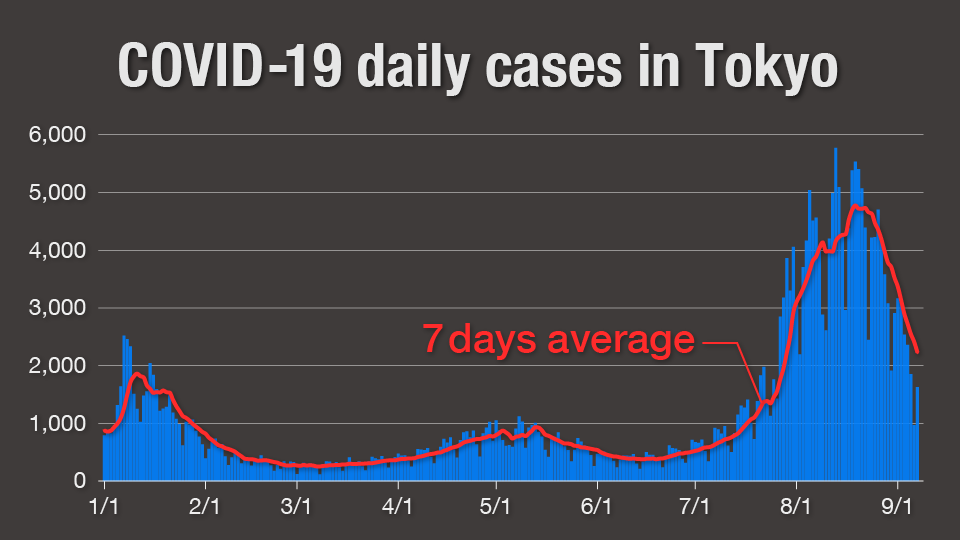
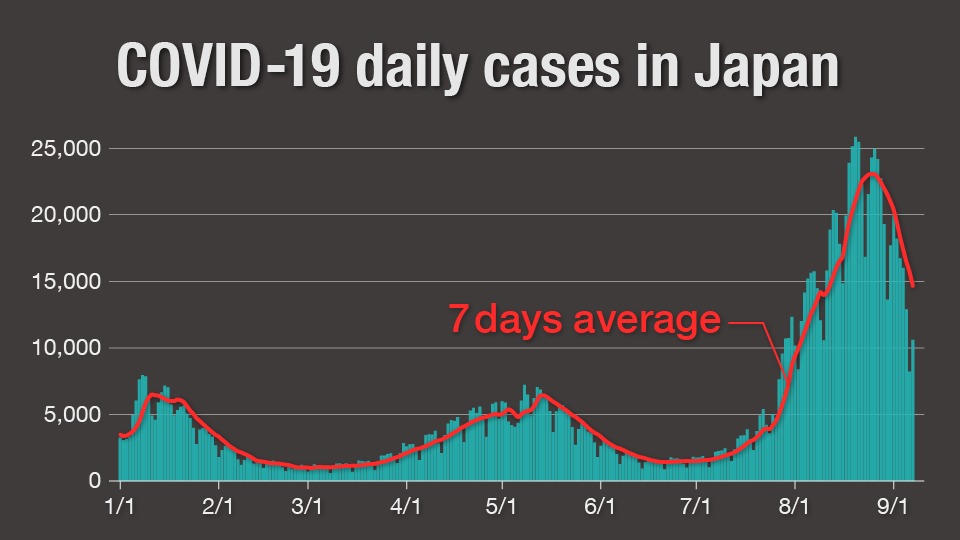
The Tokyo Metropolitan government recorded 968 new cases on Monday, the first time since July 19 that the daily tally has dipped below 1,000. The figure was also down 947 from the previous Monday, marking the 15th consecutive day of a week-on-week decline.
However, the number of seriously ill patients remains high in the capital. Severe cases stood at 267 on Monday, up three from the day before. The death toll was 16.
With hospitals throughout the region approaching capacity, many patients are being forced to try to recuperate at home. This has led to a rapid spread of the virus within families. Roughly a quarter of the 125,606 cases confirmed in Tokyo last month were the result of transmission at home.
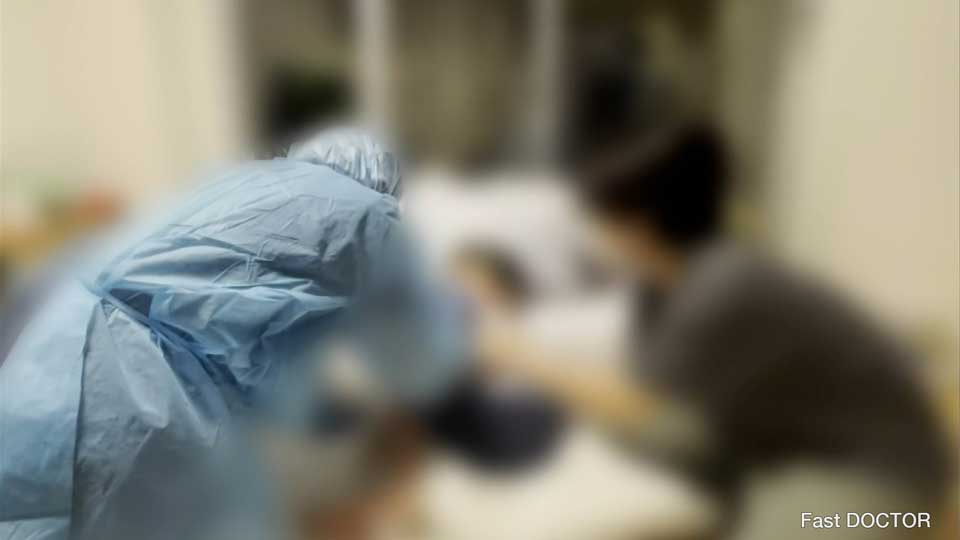
Infections are also spreading among young children. Last month, a nursery school was forced to close after five children were found to be infected.
One of the children at the school, a 5-year-old boy, has developed symptoms of pneumonia and is believed to have passed the infection on to his mother. Health officials have been unable to find places at hospitals for either, and they have been forced to stay home.
The rise in household transmissions and cases among the young comes at a particularly inauspicious time as the country enters a new school term.
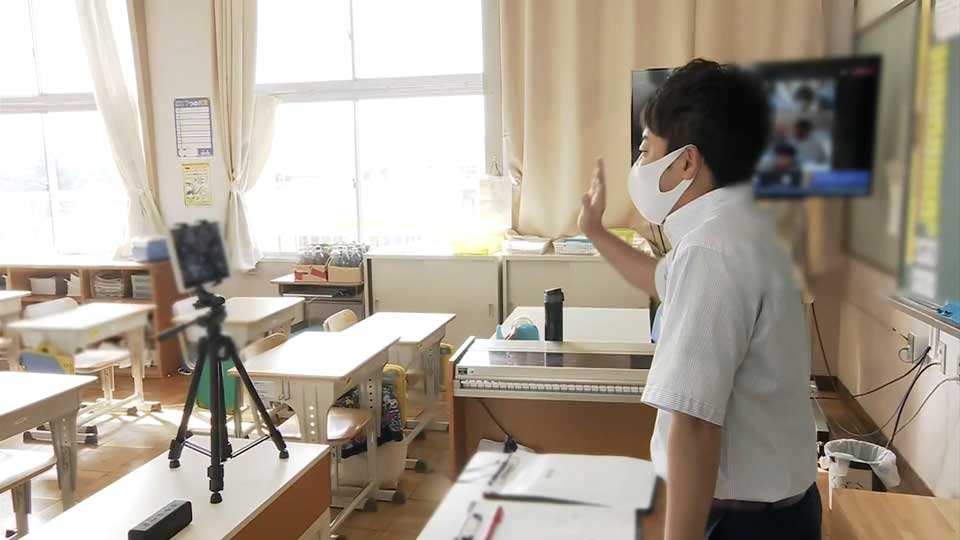
Many schools have taken preventive steps, such as allowing students to attend in rotation and introducing online classes. But such measures have proven insufficient in some cases. An elementary school in Aichi Prefecture was forced to close after it became the site of a cluster infection.
Classes have moved entirely online, with teachers regularly checking the conditions of students as they prepare for the school to reopen.
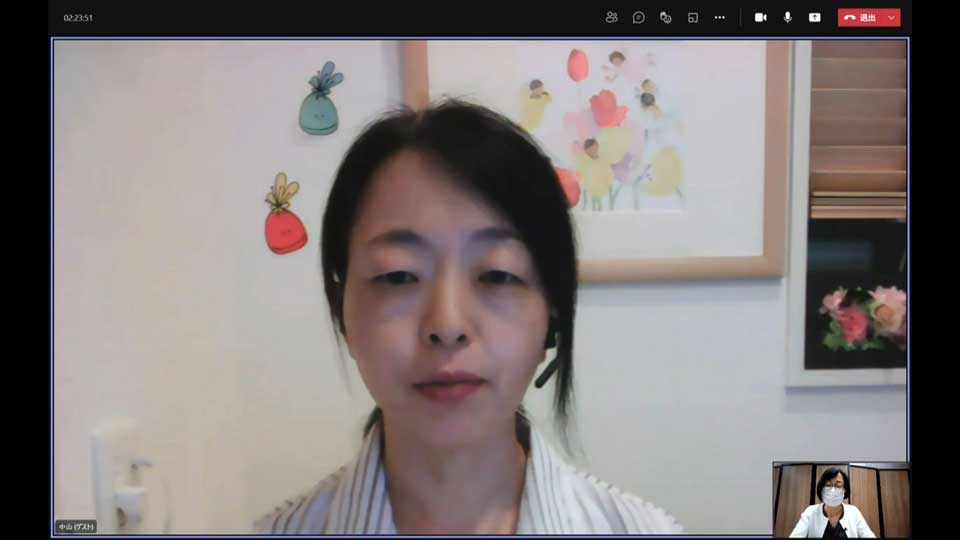
"The number of infections among children is increasing rapidly," says infectious diseases specialist Nakayama Kuniko. "We need to be careful as we could see a further increase in the coming weeks, given the incubation period and when schools opened."
The rise in cases among schoolchildren comes amid massive discrepancies based on age group in the country's vaccination rollout.
As of Sunday, 62.2 percent of people aged 12 and older had received at least one dose; 48.3 percent had both shots. However, only about 25 percent of people in their 20s and 30s had received both doses. For people aged 12-19, this drops to less than 15 percent. Meanwhile, about 80 percent of people in their 60s and older have been completely vaccinated.
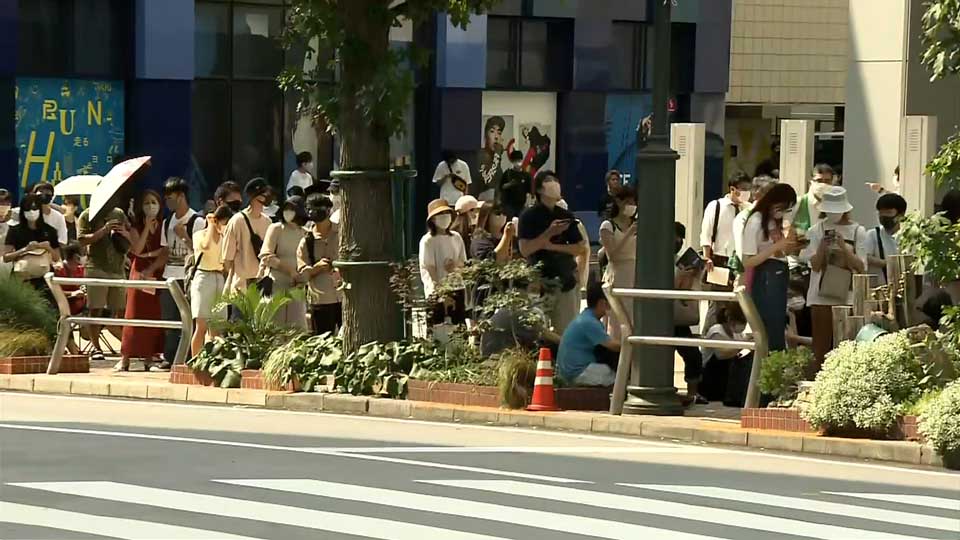
The Tokyo Government is trying to address this imbalance. Last month, it set up a walk-in vaccination site near Shibuya Station exclusively for people between the ages of 16 and 39.
However, the launch proved chaotic as officials severely underestimated demand. People crowded in front of the site from early in the morning, and hundreds were eventually forced to leave disappointed. The Tokyo government swiftly introduced an online lottery system.
The government says it will continue to work with local governments and other relevant bodies through November to try to ensure that everyone who wants a vaccine can receive one.
Some officials are urging the government to keep the current emergency measures in place for urban centers at least, including the greater Tokyo area. The government says it will make a decision based on the number of cases, capacity of medical facilities, and progress in vaccinations. It is expected to make an official announcement later this week.

